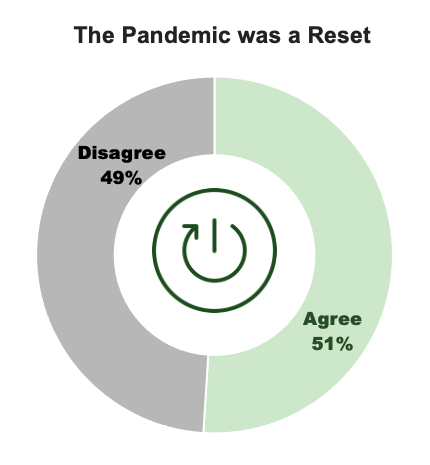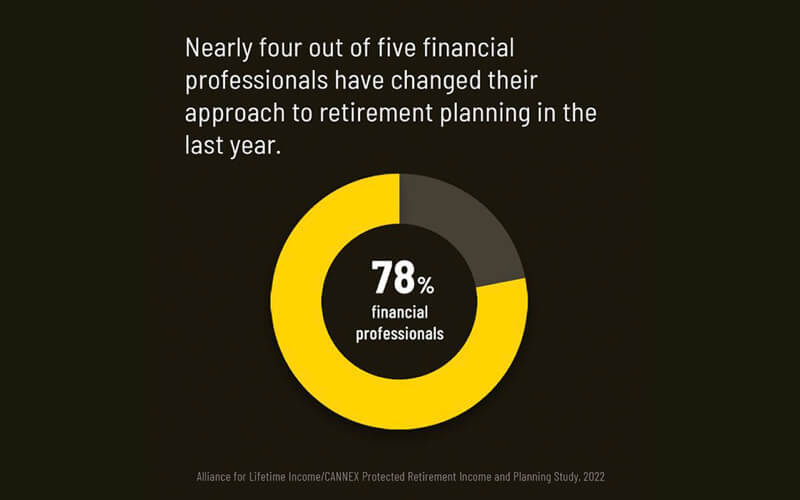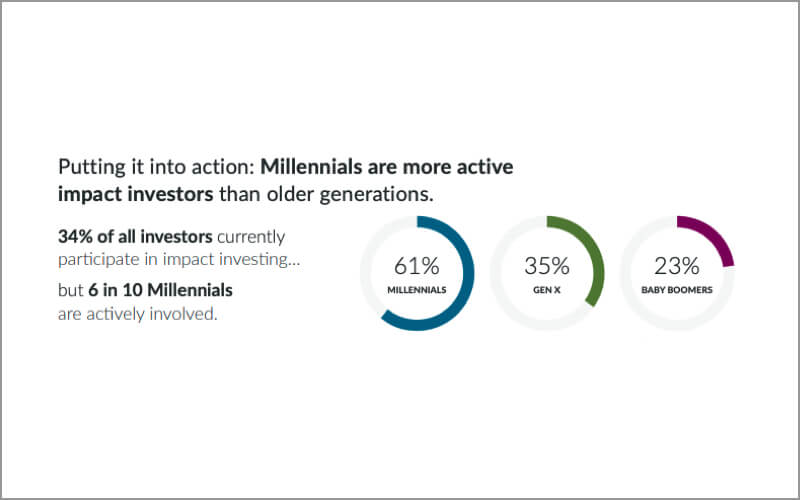Americans have been dramatically changed by the events of the last two-plus years. Catalyzed by the pandemic, momentous economic and social changes have reshaped Americans’ work and personal lives.
The last 30 months have been a period of painful lessons for most Americans, with the pandemic’s lasting effects impacting several key aspects of their lives. While most have felt the pain, many have also experienced some positive outcomes during this eventful period and have put most of the negative repercussions behind them.
These observations are among the findings of Artemis Strategy Group’s most recent study, completed in August 2022, focused on identifying the lasting impacts of the pandemic and related events.
See our recent release about top concerns Americans are facing here.
The Pandemic’s Lasting Effects
Most Americans (72%) describe the pandemic as having had a substantial effect on their lives. While many of that group say that the pandemic’s effects have passed for them (41%), nearly a third of the population (31%) characterize the effects as substantial and continuing.
In line with the nature of the challenge, the most widespread effects have been on personal health and finances, with six in ten saying they faced health (57%) problems and a nearly equal proportion (58%) who faced financial problems since March 2020. Nearly 8 out of 10 (78%) experience a health or financial problem.
- The pandemic has been particularly hard on emotional health, with 43% of Americans saying their emotional/mental health was negatively impacted during the pandemic and one-third (32%) describing their mental health today as worse than it was prior to early 2020.
- The events since early 2020 have also taken a heavy toll on the finances of many Americans. Four in ten (43%) say they are worse off financially today than they were before the pandemic, and a similar proportion (40%) describe themselves as not in control of their personal finances.
A full presentation of findings is available here [PDF].
Silver Linings
Half (51%) of Americans say the pandemic created the opportunity for a personal reset: the opening they needed to do something different with their lives. The changes that came out most strongly are:
- Relationships and communications
- Purpose and meaning
- Work suitability and work/life balance
- New ventures
New Directions
Over two-thirds (68%) of Americans feel they have made lasting personal changes — changes they expect to stick with — because of their experiences during the pandemic.
A significant number of those who’ve made lasting changes say these changes are related to their work. However, the largest proportion refer to a range of personal changes they’ve made, with some of the most prominent as follows:
- Exploration of personal spirituality
- New hobbies
- Engagement in new causes, social or political issues
The painful financial and health lessons of the pandemic have also stuck with large portions of Americans, with nearly 7 out of 10 (68%) making lasting financial or health changes.
The impact of Covid-19 is still with us.
We began this round of research with the hypothesis that most Americans think the pandemic is behind us. We were correct in one sense, but too optimistic in another sense. While nearly nine of ten (88%) believe the Covid-19 pandemic has been serious, and 79% agree it’s still with us, just over a third (37%) characterize it as a continuing serious risk. This suggests that for most Americans Covid-19 has moved from being a pandemic to being more endemic — a constant presence that poses an acceptable risk.
The experience of the pandemic has stuck with us and has changed priorities for many Americans. Having lived through this era will impact how we make important decisions moving forward: how we manage our health and our finances, how we work and the role of our personal relationships in our lives.
About the Survey
Artemis Strategy Group’s The Mindset and Motivations Survey of Americans was conducted online among 1,885 adults 18+ from July 7–18, 2022. Overall demographic targets were set to obtain a sample reflective of the U.S. adult population based on Census data.





